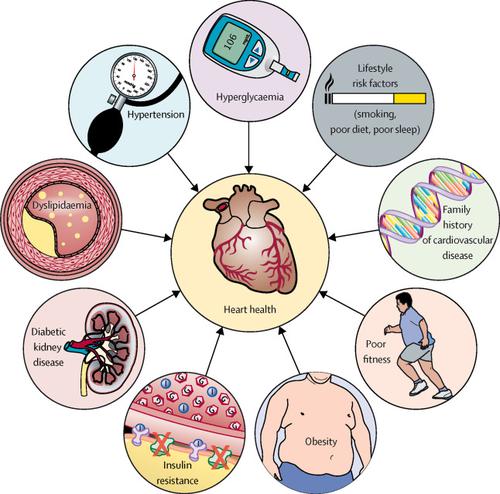Our official English website, www.x-mol.net, welcomes your
feedback! (Note: you will need to create a separate account there.)
Macrovascular disease and risk factors in youth with type 1 diabetes: time to be more attentive to treatment?
The Lancet ( IF 98.4 ) Pub Date : 2018-Oct-01 , DOI: 10.1016/s2213-8587(18)30035-4 Petter Bjornstad , Kim C Donaghue , David M Maahs
The Lancet ( IF 98.4 ) Pub Date : 2018-Oct-01 , DOI: 10.1016/s2213-8587(18)30035-4 Petter Bjornstad , Kim C Donaghue , David M Maahs

|
Cardiovascular disease remains the leading cause of mortality in patients with type 1 diabetes. Although cardiovascular disease complications are rare until adulthood, pathology and early markers can manifest in adolescence. Whereas advances have been made in the management of microvascular complications of type 1 diabetes, similar progress in reducing macrovascular complications has not been made. The reasons for the absence of progress remain incompletely understood, but most likely relate to the long time needed for cardiovascular disease to manifest clinically and hence for risk factor management to show a clinical benefit, thus allowing inertia to prevail for diagnosis and particularly for targeting risk factors. In this Review, we summarise paediatric data on traditional and novel risk factors of cardiovascular disease, provide an overview of data from previous and current clinical trials, discuss future directions in cardiovascular disease research for paediatric patients with type 1 diabetes, and advocate for the early identification and treatment of cardiovascular disease risk factors as recommended in multiple guidelines.
中文翻译:

青年1型糖尿病患者的大血管疾病和危险因素:是时候更注意治疗了吗?
心血管疾病仍然是1型糖尿病患者死亡的主要原因。尽管直到成年才很少发生心血管疾病的并发症,但病理和早期标志物可以在青春期表现出来。尽管在1型糖尿病的微血管并发症的管理方面取得了进展,但在减少大血管并发症方面也没有取得类似的进展。缺乏进展的原因尚不完全清楚,但最有可能与心血管疾病在临床上表现出来并因此风险因素管理显示出临床益处所需的时间长,从而使惯性在诊断中占主导地位,尤其是在针对风险方面因素。在这篇评论中,我们总结了有关传统和新型心血管疾病危险因素的儿科数据,
更新日期:2018-09-26
中文翻译:

青年1型糖尿病患者的大血管疾病和危险因素:是时候更注意治疗了吗?
心血管疾病仍然是1型糖尿病患者死亡的主要原因。尽管直到成年才很少发生心血管疾病的并发症,但病理和早期标志物可以在青春期表现出来。尽管在1型糖尿病的微血管并发症的管理方面取得了进展,但在减少大血管并发症方面也没有取得类似的进展。缺乏进展的原因尚不完全清楚,但最有可能与心血管疾病在临床上表现出来并因此风险因素管理显示出临床益处所需的时间长,从而使惯性在诊断中占主导地位,尤其是在针对风险方面因素。在这篇评论中,我们总结了有关传统和新型心血管疾病危险因素的儿科数据,















































 京公网安备 11010802027423号
京公网安备 11010802027423号